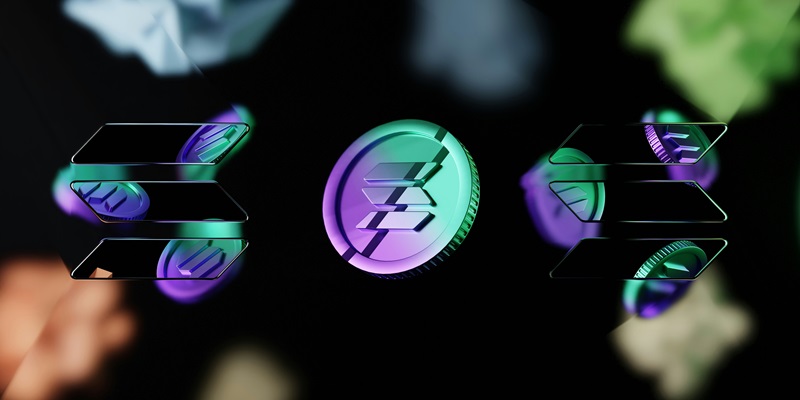Solana, a distinguished blockchain platform known for its versatility in supporting diverse domains such as finance, NFTs, payments, and gaming, has introduced two innovative developer tools: Solana Actions and blockchain links (blinks). These tools are designed to simplify blockchain transactions and seamlessly integrate them into various digital platforms, creating avenues for mass adoption. The new tools are set to revolutionize how on-chain transactions are performed and shared, making them more accessible and user-friendly for both developers and end-users.
Streamlining On-Chain Transactions
Solana Actions: Revolutionizing Digital Interactions
Solana Actions is a tool that enables users to execute on-chain transactions across various platforms, encompassing websites, social media channels, and even physical QR codes. This innovation aims to streamline the process for developers by facilitating direct integration of blockchain functionalities into their applications. This means that users can now engage in activities such as purchasing NFTs, tipping content creators, and staking assets without having to navigate away from their current platform, thus significantly enhancing user experience and convenience.
By removing the need for separate applications or platforms to perform blockchain transactions, Solana Actions provides a seamless and efficient way for users to interact with blockchain technology. This capability can foster greater user engagement and drive broader adoption, as the complexity typically associated with blockchain transactions is vastly reduced. For developers, this means easier implementation and integration, allowing their applications to leverage blockchain benefits without added intricacy. In this way, Solana Actions stands to play a pivotal role in the move toward mainstream blockchain use.
Enhancing Accessibility Through Blockchain Links
The introduction of blockchain links, also known as blinks, takes the Solana Actions functionality a step further by converting any Solana Action into a shareable link. This link can initiate a Solana transaction from any URL-displaying website, making it possible for social media platforms and other digital spaces to facilitate on-chain interactions without user redirection. This feature significantly enhances the user-friendliness and accessibility of decentralized applications by ensuring that blockchain transactions can be conducted within familiar digital environments.
Blinks enable a more cohesive online experience by allowing users to perform blockchain transactions while remaining on their preferred platforms. This enhancement not only retains user engagement but also breaks down the usual barriers to blockchain adoption, such as the need to navigate multiple interfaces. By integrating blinks, developers can offer their users straightforward, efficient means to interact with blockchain technology, fostering a smoother transition to the decentralized web. This leap in accessibility promises to draw in users who might have otherwise been deterred by the complicated nature of traditional blockchain transactions.
Driving Toward Mainstream Adoption
Tools for Lowering Entry Barriers
The overarching trend underscored by these innovations is a concerted push toward the mainstream adoption of blockchain technology. Jon Wong, the head of ecosystem engineering at the Solana Foundation, emphasizes that these tools are crafted to make blockchain more accessible by lowering entry barriers. With Solana Actions and blinks, any website or application can act as a distribution point for on-chain interactions, reducing the technical hurdles that have historically impeded widespread adoption. This accessibility encourages a more inclusive digital economy by enabling a broader audience to participate in blockchain transactions.
Chris Osborn, the founder of Dialect, echoes this sentiment by highlighting the portability, shareability, and actionability of these tools across various platforms. By providing tangible, straightforward means for users and developers alike to tap into blockchain functions, Solana is actively working to bridge the gap between the niche blockchain enthusiast community and the general digital populace. This democratization of blockchain tech aligns with the broader objectives of fostering a secure, efficient, and inclusive digital economy that benefits all stakeholders.
A Pivotal Step Toward Blockchain Integration
Solana, a prominent blockchain platform recognized for its adaptability in supporting various sectors such as finance, non-fungible tokens (NFTs), payments, and gaming, has unveiled two groundbreaking developer tools: Solana Actions and blockchain links, also known as blinks. These tools aim to streamline blockchain transactions and integrate them effortlessly into different digital environments, paving the way for broader adoption. By simplifying the process of executing and sharing on-chain transactions, Solana Actions and blinks are poised to transform the blockchain landscape, making it more accessible and intuitive for developers as well as end-users. Solana’s innovation doesn’t just stop there; these tools are expected to enhance the platform’s appeal by reducing the friction typically associated with blockchain technology. Consequently, more developers are anticipated to engage with Solana’s ecosystem, creating rich, diverse applications that leverage its high-speed and low-cost transactions. With these new tools, Solana is positioning itself as a leader, driving the next wave of blockchain adoption and usage.

